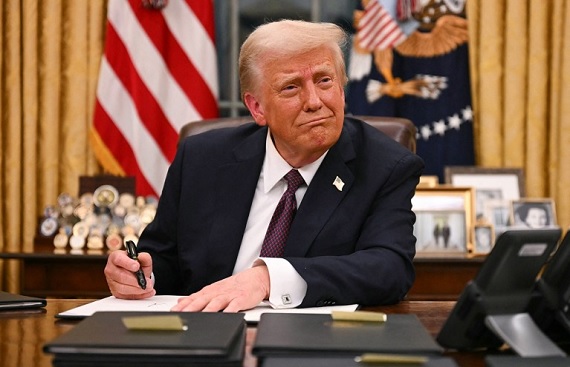Trump's Copper Tariffs Threaten India's Semiconductor and Electronics Push
By
siliconindia | Monday, 14 July 2025, 10:35 Hrs

- Donald Trump’s proposed 30% tariff on copper imports may disrupt global supply chains, affecting India’s electronics and semiconductor sectors.
- India relies on high-purity imported copper for chip wiring and PCBs; domestic production is not yet at the required scale.
- Industry leaders urge the Indian government to boost domestic copper production to avoid rising costs and supply disruptions.
Former U.S. President Donald Trump’s latest move to impose a 30% tariff on imported copper products has sparked global concerns, with significant potential fallout for India’s electronics and semiconductor sectors. Industry experts warn that the proposed tariffs could disrupt global supply chains and inflate production costs, especially for nations like India that rely heavily on high-purity copper imports.
According to an Economic Times report, analysts believe the tariffs could hinder India’s semiconductor manufacturing efforts, a key pillar of the country’s ambition to become a global chip hub. India currently imports refined copper used in vital components such as chip wiring, printed circuit boards (PCBs), and power systems.
SEMI India President Ashok Chandok emphasized copper’s critical role in semiconductor production and flagged procedural hurdles faced by importers of gold-plated copper wires. “Any disruption in copper imports can stall progress in advanced electronics manufacturing,” Chandok noted.
The Indian Electronics and Semiconductor Association (IESA) also raised red flags. Although domestic producers like Sterlite, Hindalco, and Hindustan Copper supply some of the required copper, industry leaders argue that the scale of local production is inadequate. IESA cautioned that if tariffs lead to tighter global supply and higher prices, India's production costs will surge.
Kunal Chaudhary, Partner at EY India, stated that even if semiconductors aren’t directly taxed, the refined copper needed for chip fabrication will become costlier due to global pricing shifts.
In FY 2024–25, India exported $2 billion worth of copper products, with $360 million or 17% shipped to the U.S., making it the third-largest market. Industry bodies are urging the Indian government to not only streamline copper imports but also boost investments in domestic production to reduce dependency.
